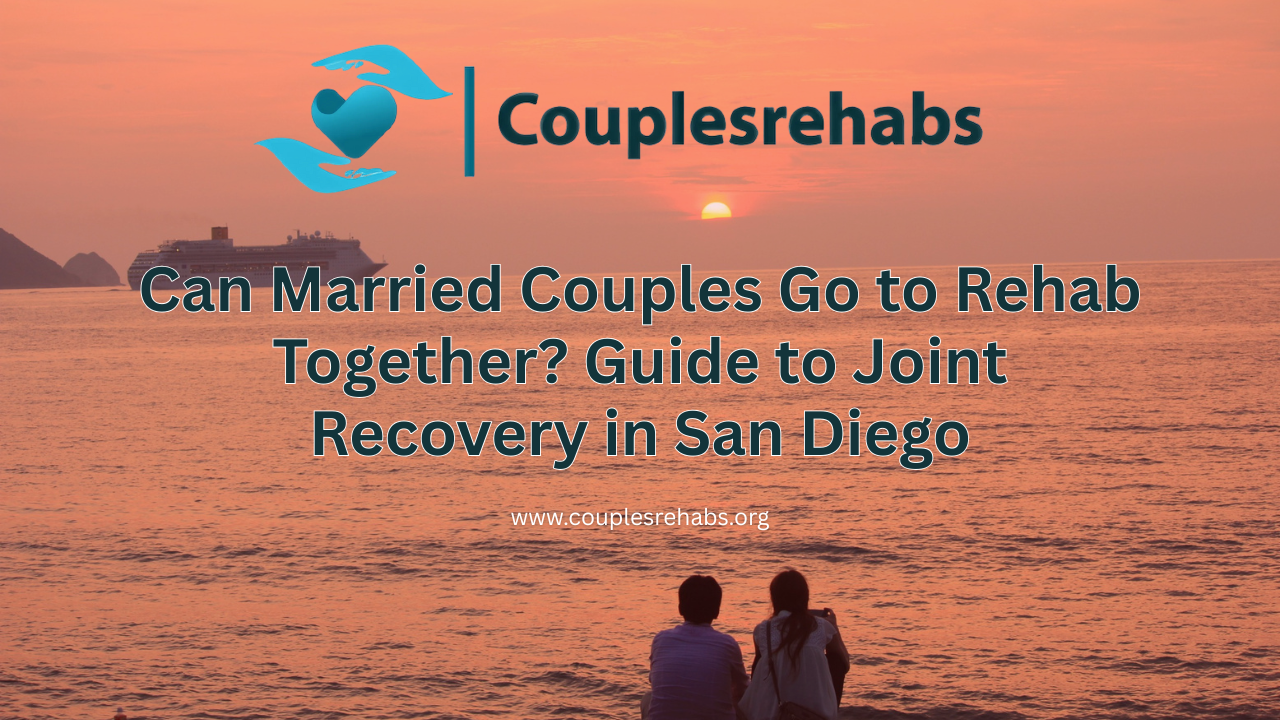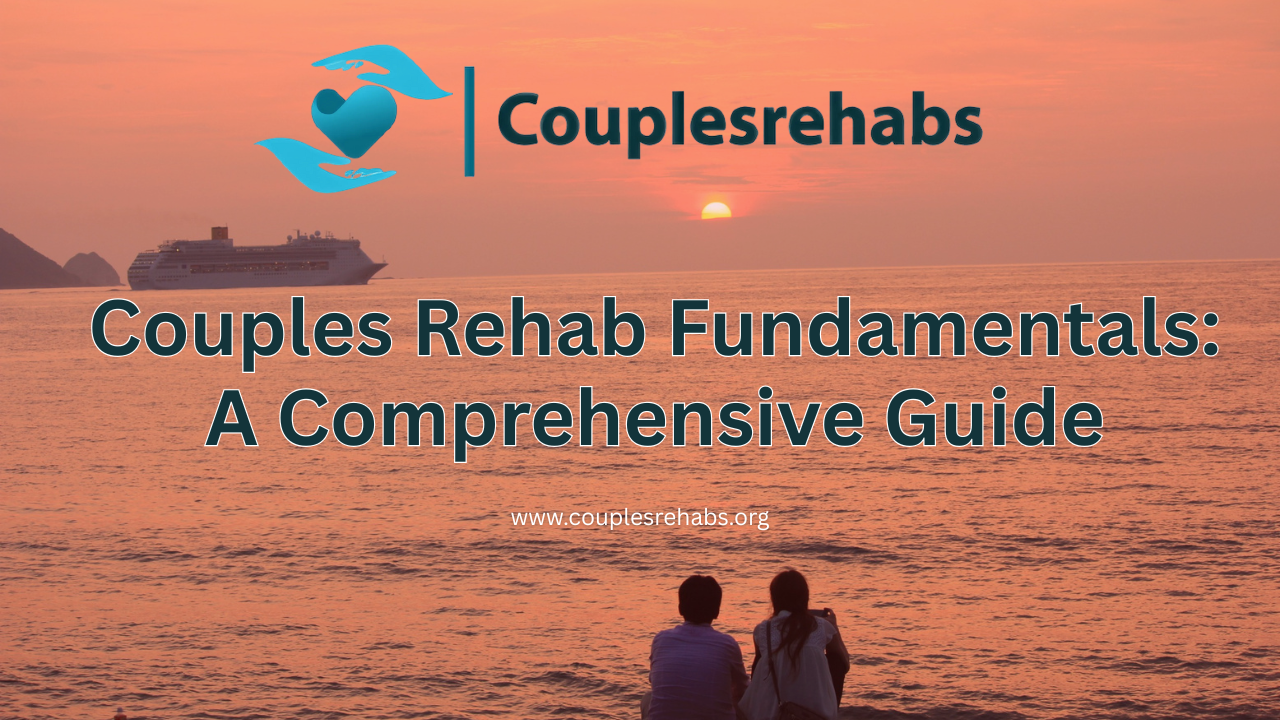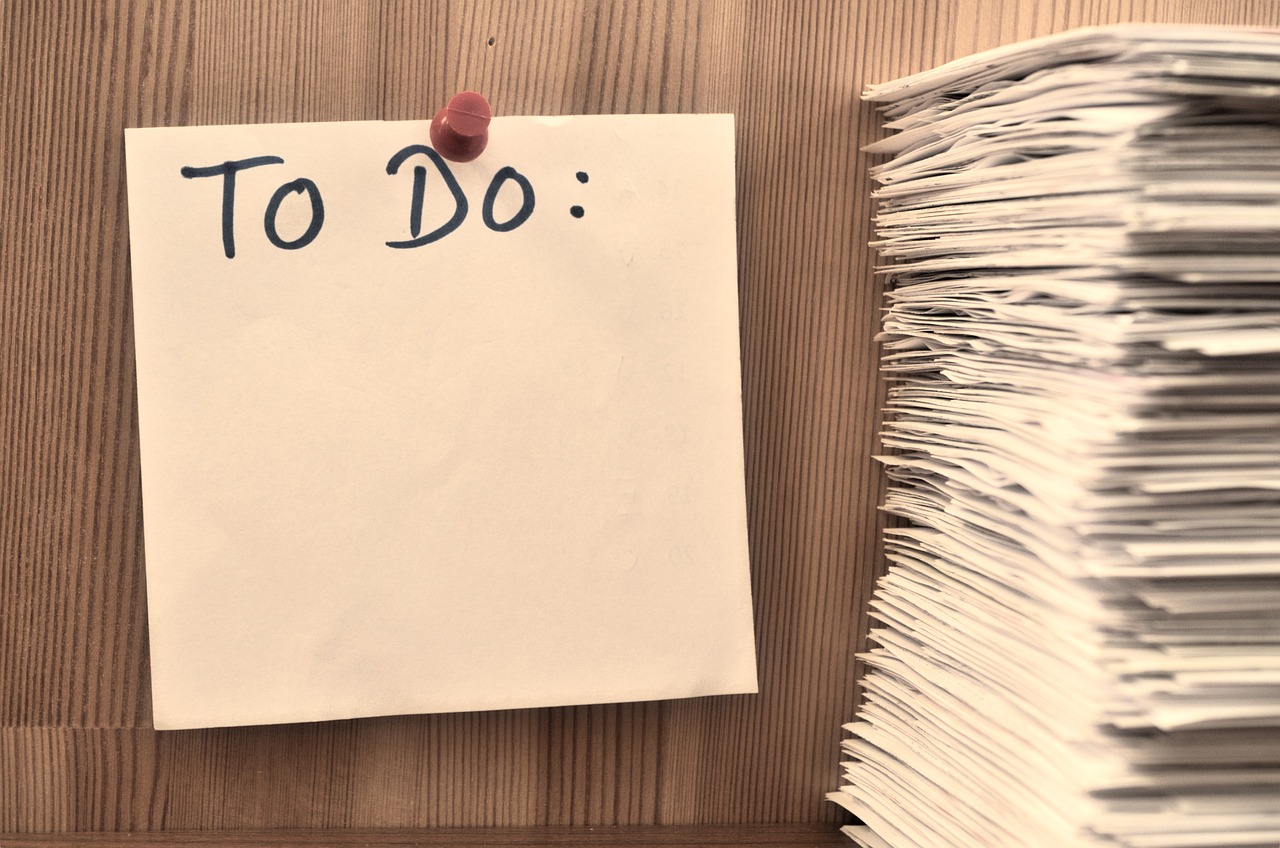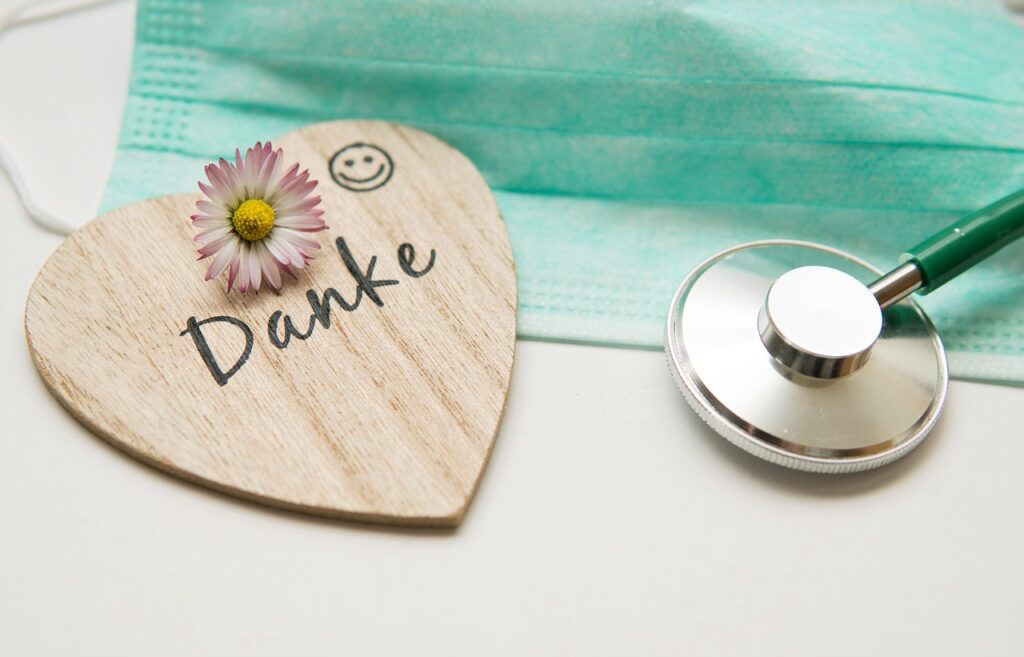Can Married Couples Go to Rehab Together? Guide to Joint Recovery in San Diego
Sarah and Michael had been married for twelve years when they finally acknowledged their shared struggle with alcohol dependency. What had begun as social drinking had gradually evolved into a coping mechanism for both of them—Sarah with her high-pressure career, Michael with his unresolved trauma. They recognized they needed help, but the thought of separating during such a vulnerable time seemed impossible. “If I go to treatment and he stays home, who’s holding who accountable?” Sarah wondered.
The answer is yes—married couples can attend rehabilitation together, and in many cases, joint treatment offers unique advantages that individual programs cannot provide. Here in San Diego, specialized couples rehabilitation programs address not only individual substance use disorders but also the relationship dynamics that may contribute to addiction patterns. These programs recognize that when both partners struggle with substance use, healing the relationship becomes as crucial as healing the individuals.
In this comprehensive guide, we’ll explore the world of couples rehabilitation in San Diego, examining everything from insurance coverage and cost considerations to therapeutic approaches and success rates. Whether you’re considering a luxury facility or seeking affordable options, this article will help you navigate the path to joint recovery.
Understanding Couples Rehabilitation: A Unified Approach to Recovery
Couples rehabilitation represents a specialized approach to addiction treatment that addresses the unique challenges faced when both partners struggle with substance use disorders. Unlike traditional individual treatment, which separates spouses during a critical time, couples rehab allows partners to heal together while learning to support each other’s sobriety.
The philosophy behind couples rehabilitation acknowledges that addiction affects not just individuals but entire relationship systems. Through joint treatment, couples learn to identify destructive patterns, develop healthy communication strategies, and rebuild trust that may have been damaged through years of substance use.
Research supports this integrated approach. A study in the Journal of Substance Abuse Treatment found that couples who attended rehabilitation together had a 61% abstinence rate after one year, compared to 34% for individuals who attended treatment without their partners’ involvement.
The Benefits of Joint Recovery for Married Couples
Strengthening Relationship Foundations During Recovery
Addiction often erodes the fundamental elements of a healthy relationship: trust, communication, intimacy, and shared values. Couples rehabilitation creates a structured environment where partners can rebuild these foundations under professional guidance. Unlike individual treatment, which may address relationship issues abstractly, couples rehab places the relationship itself at the center of the recovery process.
Addressing Codependency and Enabling Behaviors Together
Many couples develop intricate patterns of codependency and enabling that unintentionally sustain addiction. One partner might call in sick for the other after a night of heavy drinking, make excuses to family members, or take on additional responsibilities to compensate for the addicted partner’s inability to function.
In couples rehab, both partners gain insight into these patterns simultaneously. They learn to recognize enabling behaviors in real-time and develop healthier alternatives under the guidance of trained therapists who can mediate difficult conversations. This joint learning process eliminates the knowledge gap that often occurs when one partner receives treatment while the other remains at home.
Creating a Unified Support System for Long-term Sobriety
Recovery doesn’t end with discharge from a treatment program—it requires ongoing vigilance and support. Couples who attend rehab together emerge with a shared vocabulary around recovery, common tools for managing triggers, and unified strategies for building a sober lifestyle.
Learning Communication Skills as a Core Recovery Tool
Substance use often serves as a way to avoid difficult emotions and conversations. In couples rehab, partners learn to replace substances with effective communication strategies. They practice expressing needs directly, navigating conflicts constructively, and sharing vulnerable emotions in a safe environment.
These skills become essential tools for long-term recovery, as couples learn to address issues that might otherwise trigger relapse. “So many relapses occur because people don’t know how to ask for what they need or express when they’re struggling,” explains Dr. Martinez. “When couples learn these skills together, they create a relationship where honest communication replaces substance use as the default response to distress.”
Couples Rehab Centers in San Diego that Accept Insurance
Navigating insurance coverage for addiction treatment can be complex, especially for couples seeking joint treatment. Fortunately, several San Diego facilities that specialize in couples rehabilitation work with major insurance providers to make treatment accessible.
California’s strong parity laws require insurance companies to cover substance use disorder treatment at the same level as they would cover any other medical condition. However, coverage specifics vary significantly between plans, particularly regarding couple-focused programs.
Couples Rehabs in San Diego works with most major insurance providers, including Anthem Blue Cross, Blue Shield of California, Cigna, Aetna, and United Healthcare. Their insurance specialists conduct comprehensive benefits verification before admission, identifying exactly what services are covered and what out-of-pocket expenses couples can expect.
Other reputable facilities in the area accepting insurance for couples programs include:
Pacific Recovery Center: Specializes in dual-diagnosis treatment for couples, accepting most PPO insurance plans.
Oceanside Healing Center: Known for their trauma-informed approach to couples recovery, they work with most major insurance providers.
Bay View Wellness: Offers tiered programming for couples at various price points, working extensively with insurance providers to maximize benefits.
Harbor Lights Recovery: Features specialized programs for older adult couples, accepting Medicare in addition to private insurance plans.
Before selecting a facility, couples should verify their specific coverage, including questions about shared rooms, family sessions, and couples therapy components, as coverage for these elements varies between plans.
Success Rates and Effectiveness of Couples Rehabilitation in San Diego
When evaluating treatment options, many couples naturally want to understand the likelihood of successful outcomes. While individual factors significantly impact recovery success, research and local outcomes data provide encouraging insights into couples rehabilitation effectiveness.
According to a comprehensive study of San Diego treatment programs, couples who completed at least 90 days of joint treatment showed a 58% rate of continued sobriety for both partners at the one-year mark—significantly higher than the 39% rate for individuals in traditional programs. Even more promising, relationship stability rates were nearly twice as high for couples who attended rehab together compared to those who sought separate treatment.
At Couples Rehabs, outcome tracking shows that 63% of couples who complete their full program remain substance-free at the 18-month mark, with relationship satisfaction scores showing average improvements of 47% from admission to follow-up.
Several factors influence these success rates:
- Program completion: Couples who complete the full recommended treatment duration show substantially higher success rates than those who leave prematurely.
- Aftercare engagement: Couples who actively participate in recommended aftercare, including therapy and support groups, maintain significantly higher sobriety rates.
- Addressing co-occurring disorders: Programs that effectively treat underlying mental health conditions alongside addiction show better long-term outcomes.
- Family involvement: Broader family healing and support correlates strongly with sustained recovery.

Luxury Rehab Options for Married Couples in San Diego
San Diego’s idyllic climate and coastal beauty have made it home to several luxury rehabilitation facilities that cater specifically to couples seeking premium recovery experiences. These facilities combine clinical excellence with resort-level amenities, creating environments where couples can focus entirely on healing.
Luxury rehabilitation for couples typically includes private suites with ocean or mountain views, gourmet cuisine prepared by private chefs, holistic wellness programming, and high staff-to-client ratios ensuring personalized care. While these amenities might seem secondary to clinical considerations, many couples find that comfortable surroundings reduce treatment resistance and allow deeper engagement with therapeutic work.
Couples Rehabs’ luxury program features oceanfront accommodations in La Jolla, with private couples suites designed specifically for joint recovery. The program integrates evidence-based clinical care with complementary approaches including equine therapy, neurofeedback, ocean therapy, and nutritional counseling.
Other notable luxury options include mountaintop retreats in the hills east of San Diego, offering privacy and spectacular views, and exclusive downtown facilities providing urban sophistication alongside intensive treatment.
Understanding the Cost of Couples Inpatient Rehab in San Diego
The cost of couples rehabilitation varies significantly based on several factors, including program duration, level of care, facility amenities, and insurance coverage. Understanding these variables helps couples make informed financial decisions while prioritizing their recovery needs.
In San Diego, standard couples inpatient rehabilitation programs typically range from $30,000 to $45,000 per couple for a 30-day program. This includes shared accommodation, all therapeutic services, and basic amenities. More intensive treatment involving medically supervised detoxification may add $5,000-$8,000 to these base costs.
Luxury programs with premium amenities and locations can range from $50,000 to $90,000+ per couple for a 30-day stay. These programs often include private accommodations, specialized holistic services, and higher staff-to-client ratios.
Several options exist to manage these costs:
- Insurance coverage: While rarely covering 100% of couples-specific services, insurance can substantially reduce out-of-pocket expenses.
- Sliding scale fees: Many San Diego facilities adjust costs based on financial need, particularly for couples demonstrating significant financial hardship.
- Payment plans: Most facilities offer no-interest payment arrangements allowing couples to distribute costs over 12-24 months.
- Healthcare loans: Specialized healthcare financing through companies like Prosper Healthcare Lending provides options specifically for addiction treatment.
Couples Rehabs offers comprehensive financial consultations to help couples understand their options and develop a sustainable payment plan. Their team includes dedicated insurance specialists who work to maximize benefits, while financial counselors explore all available resources for couples facing financial constraints.
Specialized Therapy Approaches for Couples in Addiction Treatment
Behavioral Couples Therapy for Addiction Recovery
Behavioral Couples Therapy (BCT) represents one of the most evidence-backed approaches for treating addiction in a relationship context. This structured approach combines cognitive-behavioral techniques with relationship-focused interventions, helping couples understand how their behaviors and interactions influence substance use patterns.
A cornerstone of BCT is the “recovery contract,” a formal agreement outlining specific behaviors each partner commits to supporting recovery. This might include daily affirmations of sobriety, structured communication about cravings, and concrete plans for responding to high-risk situations. Research shows that these concrete agreements, when followed consistently, significantly reduce relapse rates.
Integrating Individual and Relationship Healing
Effective couples rehabilitation balances individual recovery needs with relationship healing. Most San Diego programs structure treatment to include both individual and couples therapy sessions, recognizing that each partner brings personal histories, trauma, and mental health considerations to the relationship.
This integrated approach allows therapists to address personal issues that might be too sensitive for initial couples sessions while ensuring that individual insights are eventually brought into the relationship context when appropriate. Partners learn to support each other’s individual recovery journeys while building a shared vision for their sober relationship.
Addressing Dual Diagnosis in Couples Rehabilitation
When mental health conditions co-occur with addiction—a situation known as dual diagnosis—specialized approaches become essential. Many couples enter treatment with complex presentations: one partner might struggle with depression and alcohol use, while the other contends with anxiety and prescription medication dependence.
San Diego’s leading couples facilities employ psychiatrists and psychiatric nurse practitioners trained specifically in addiction medicine, ensuring proper evaluation and medication management for conditions like depression, anxiety, PTSD, and bipolar disorder. These professionals work closely with the couples therapy team to integrate mental health treatment with addiction recovery and relationship healing.
Couples Rehabs has developed particular expertise in treating complex dual-diagnosis situations, with specialized tracks for couples dealing with trauma, mood disorders, and chronic pain alongside substance use issues.
Long-term Residential Treatment Options for Married Couples
For couples with severe or long-standing addiction, extended treatment often provides the best foundation for lasting recovery. Long-term residential programs—typically 90 days or more—allow couples to progress through recovery stages while developing and practicing new relationship skills in a supportive environment.
These extended programs typically follow a phased approach:
- Stabilization phase (days 1-30): Focuses on physical healing, withdrawal management, and building basic recovery skills while beginning to address fundamental relationship patterns.
- Intensive therapeutic phase (days 31-60): Deepens therapeutic work, addressing root causes of addiction and core relationship issues through intensive couples and individual therapy.
- Reintegration preparation (days 61-90+): Gradually increases autonomy and responsibility while developing concrete plans for maintaining recovery in the home environment.
San Diego offers several exceptional long-term options for couples, including Couples Rehabs’ 90-day comprehensive program. This extended format allows couples to progress through these phases with appropriate support, significantly improving outcomes for those with complex presentations.
Frequently Asked Questions About Couples Rehab in San Diego
Can married couples with dual diagnoses go to rehab together in San Diego?
Yes, several San Diego facilities specialize in treating couples where both partners have co-occurring mental health and substance use disorders. These programs employ psychiatrists and addiction specialists alongside couples therapists, ensuring integrated treatment of all conditions. Couples Rehabs offers a comprehensive dual-diagnosis track specifically designed for couples with complex presentations.
How does behavioral couples therapy work for addiction treatment?
Behavioral Couples Therapy combines evidence-based addiction treatment with relationship interventions. Couples create formal recovery contracts outlining specific behaviors that support sobriety, practice communication skills focusing on recovery needs, and learn to engage in rewarding non-substance-related activities together. BCT typically includes both individual sessions addressing personal recovery and joint sessions focused on relationship dynamics.
What happens if one spouse relapses during couples treatment?
Most couples programs have established protocols for addressing relapse while maintaining the treatment relationship. Depending on the situation, the relapsing partner may temporarily move to a higher level of care while maintaining couples therapy when clinically appropriate. The non-relapsing partner receives support for their feelings while learning to maintain appropriate boundaries.
Are there specific programs for couples with children?
Yes, several San Diego facilities offer family-inclusive programming that addresses parenting alongside recovery. These programs provide family therapy sessions including children when appropriate, parenting skills development, and assistance with childcare arrangements during treatment.
The Journey Forward: Building a Sober Life Together
Recovery represents not just an end to substance use, but the beginning of a new relationship—one built on authentic connection, effective communication, and shared purpose. For married couples who take the courageous step of seeking help together, rehabilitation offers an opportunity to transform their relationship while healing individually.
San Diego’s specialized couples programs provide the expertise, support, and structured environment needed for this transformation. From addressing complex trauma and mental health needs to rebuilding intimacy and trust, these programs offer comprehensive healing that acknowledges the unique challenges and opportunities when both partners seek recovery simultaneously.
The journey isn’t easy—it requires vulnerability, honesty, and commitment from both partners. But for couples willing to do this work, the rewards extend far beyond sobriety. Many couples describe their shared recovery as a profound turning point, the foundation for a relationship deeper and more fulfilling than anything they experienced before.
If you and your spouse are struggling with substance use, remember that help is available. Couples Rehabs in San Diego specializes in guiding couples through this transformation, providing the tools, support, and expertise needed for lasting recovery—together. The first step is reaching out. Your new life as a couple awaits.










Recent Comments